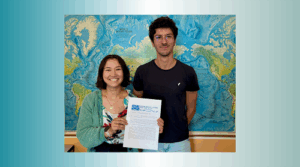Post-Doctorate
Research scientist position in modeling CO2 and pollutant emissions in Indian cities using satellite images and artificial intelligence (offer 2)
Contexte
We are seeking enthusiastic and highly motivated candidates for one research scientist to work on near real-time urban CO2 and pollutants emissions modeling for more than a hundred Indian cities, as part of a three-year project in collaboration with the Indian Institute of Technology (IIT) Bombay.
The topic’s focus is modeling emissions at very high spatial-temporal resolutions down to street and building level, for traffic and residential transportation and industrial point sources, leveraging large datasets from on-site surveys and sensors to satellite imagery aided by cutting-edge machine learning techniques and innovative system design.
Description
Background
India ranks as the third-largest energy consumer globally and for 7% of the world’s anthropogenic greenhouse gasses emissions. The projected growth of the Indian population (416 million from 2018 to 2050) and the expansion of urban areas will result in a surge in energy consumption and emissions in Indian cities.
To adopt low-carbon city planning strategies, fill the data gap between urban and national emissions, and explore effective pathways for achieving decarbonization goals, better sectorial modeling and high-resolution maps of CO2 emissions, energy use, and co-emitted pollutants are needed.
The work
The candidates will combine multiple sensors satellite imagery (visible, infrared, radar) and Open data on building types and shapes, climate and land use datasets, and district-level energy and survey data to derive building typology and energy use intensity for mapping direct emissions and Scope 2 emissions from power consumption. The candidates will be expected to contribute to scientific paper writing.
The candidates will collaborate with the team of Prof. Harish Phuleria (Dept. of Environmental Science and Engineering) and Prof. Arnab Jana (Center for Urban Science and Engineering) at IIT Bombay. It will involve coordinating and handling systematic data sharing/exchange with team members at IIT Bombay. As part of the collaboration, there will be frequent visits to India if needed.
Benefits
- Exciting and challenging tasks in an open, friendly, and multicultural team
- Excellent scientific infrastructure and research network
- Training & support for AI methods, image processing, and data visualization
- Development of an international network of research collaboration
The laboratory, salary and duration
LSCE (https://www.lsce.ipsl.fr) is an established, world-class research laboratory, representing a collaboration between CEA, CNRS, and the University Paris Saclay (ranking among the best universities worldwide). LSCE hosts approximately 300 researchers, engineers, and administrative staff and coordinates the CALIPSO project which gathers researchers from 13 international institutions. The work will provide the employee with the opportunity to work directly on advanced methods with researchers from the LSCE and other institutions worldwide.
Location: Laboratoire des Sciences du Climat et de l’Environnement (LSCE) located about 20 km from the heart of Paris in the new research & innovation cluster plateau de Saclay.
Salary: under national regulations including full social and health benefits
Position duration: 3 years
Expected start date: starting from 2024 (open until filled)
How to apply
Applicants should submit a complete application package by email to:
• •
The application package should include:
- a curriculum vitae including most important recent publications
- statement of motivation and preferred topic(s)
- answers to the requirements above
- names, addresses, phone numbers, and email addresses of at least two references.
Compétences requises
For research scientists
- Ph.D. degree in environmental sciences, GIS, computer science, or equivalent
- Strong interest in GHG emission modeling, urban research, and machine learning
- Proficient in written and spoken English
- Experience in programming (Python is preferred)
- Experience in machine learning (deep learning experience is preferred)






